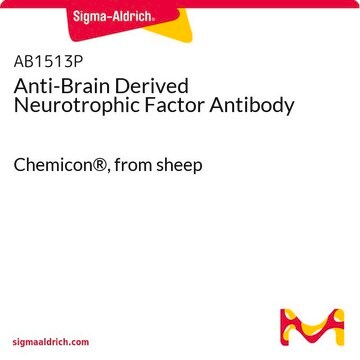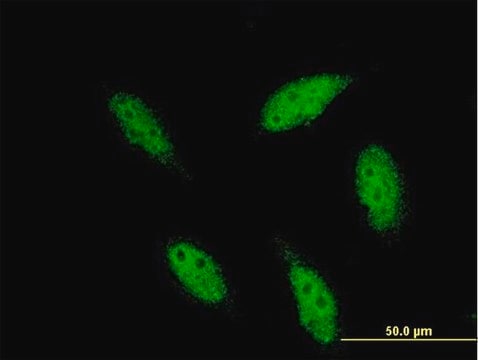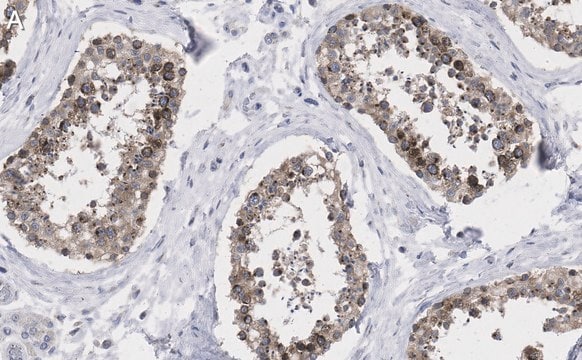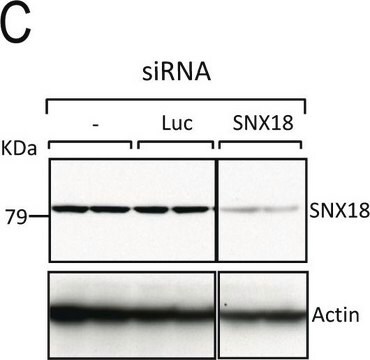07-408
Anti-Smad2/3 Antibody
Upstate®, from rabbit
Synonym(s):
MAD, mothers against decapentaplegic homolog 2 (Drosophila), Mad protein homolog, Mad, mothers against decapentaplegic homolog 2, Mad-related protein 2, Mothers against DPP homolog 2, SMAD 2, SMAD family member 2, SMAD, mothers against DPP homolog 2, SMA
About This Item
Recommended Products
biological source
rabbit
Quality Level
antibody form
affinity isolated antibody
antibody product type
primary antibodies
clone
polyclonal
purified by
affinity chromatography
species reactivity
human, mouse, rat
packaging
antibody small pack of 25 μL
manufacturer/tradename
Upstate®
technique(s)
western blot: suitable
isotype
IgG
NCBI accession no.
UniProt accession no.
shipped in
ambient
target post-translational modification
unmodified
Gene Information
human ... SMAD2(4087)
General description
Specificity
Immunogen
Application
Optimal working dilutiuons must be determined by end user.
Epigenetics & Nuclear Function
Transcription Factors
Quality
Western Blot Analysis:
1:500 dilution of this lot detected SMAD2/3 on 10 μg of Hela lysates.
Target description
Linkage
Physical form
Storage and Stability
Handling Recommendations: Upon first thaw, and prior to removing the cap, centrifuge the vial and gently mix the solution. Aliquot into microcentrifuge tubes and store at -20°C. Avoid repeated freeze/thaw cycles, which may damage IgG and affect product performance. Note: Variabillity in freezer temperatures below -20°C may cause glycerol containing solutions to become frozen during storage.
Analysis Note
HepG2 cell lysate.
Other Notes
Legal Information
Disclaimer
Not finding the right product?
Try our Product Selector Tool.
recommended
Certificates of Analysis (COA)
Search for Certificates of Analysis (COA) by entering the products Lot/Batch Number. Lot and Batch Numbers can be found on a product’s label following the words ‘Lot’ or ‘Batch’.
Already Own This Product?
Find documentation for the products that you have recently purchased in the Document Library.
Our team of scientists has experience in all areas of research including Life Science, Material Science, Chemical Synthesis, Chromatography, Analytical and many others.
Contact Technical Service








